Razer Cobra Mouse - Review
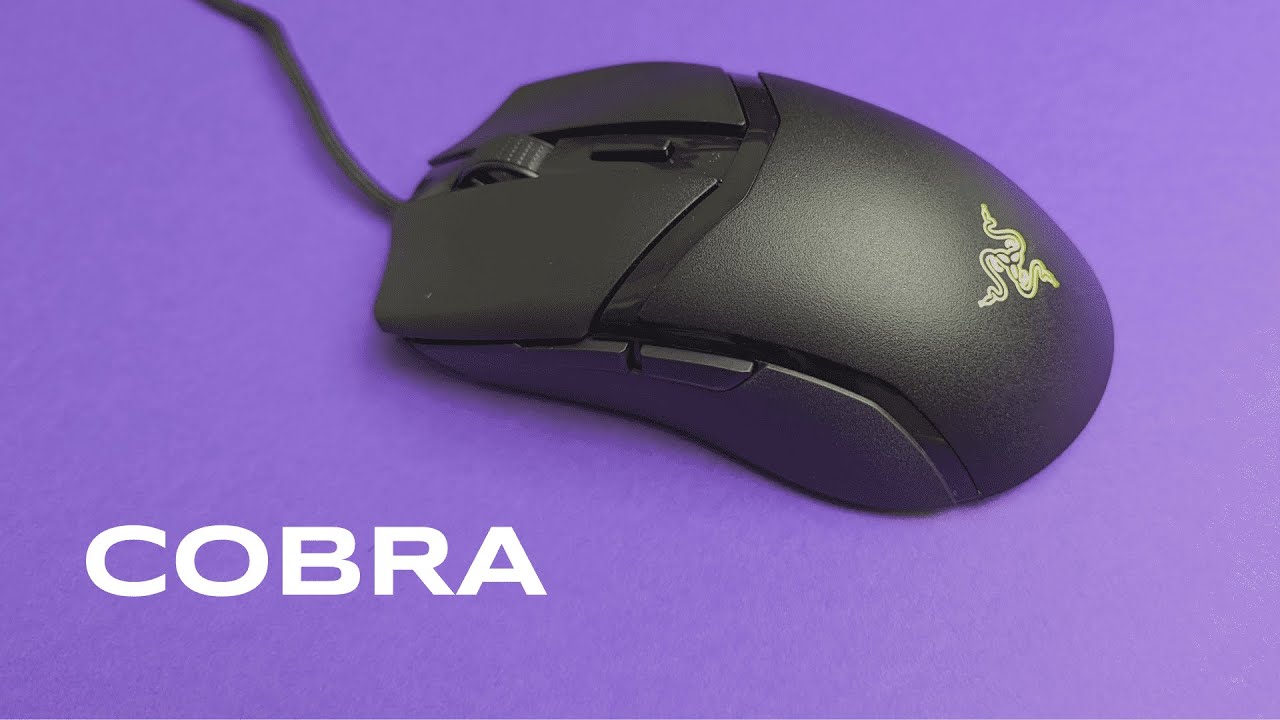
Table of Contents
- Intro: Who the Razer Cobra is for
- What you get in the box
- Design and build quality
- Sensor, feet, and tracking
- Weight and movement
- Cable: flexible and low drag
- Switches and click feel
- Comfort and grip styles
- RGB and software customization
- Functionality and button mapping
- Pros and cons at a glance
- Who should buy the Razer Cobra?
- Detailed specs summary
- Final thoughts
- Is the Razer Cobra a wireless mouse?
- How heavy is the Razer Cobra?
- Does the Cobra have onboard memory for profiles?
- Can I use advanced customization on a Mac?
- Are the switches quiet?
- Which grip styles work best with the Cobra?
Intro: Who the Razer Cobra is for
If you are stepping up from a basic office mouse or you are a mid-tier gamer looking for a reliable, lightweight wired option, the Razer Cobra is aimed right at you. It sits below Razer's pro models in terms of features and price, but it brings a solid combination of build quality, comfort, and performance that makes it a great choice for beginners and productivity-focused users who still want gaming-grade responsiveness.
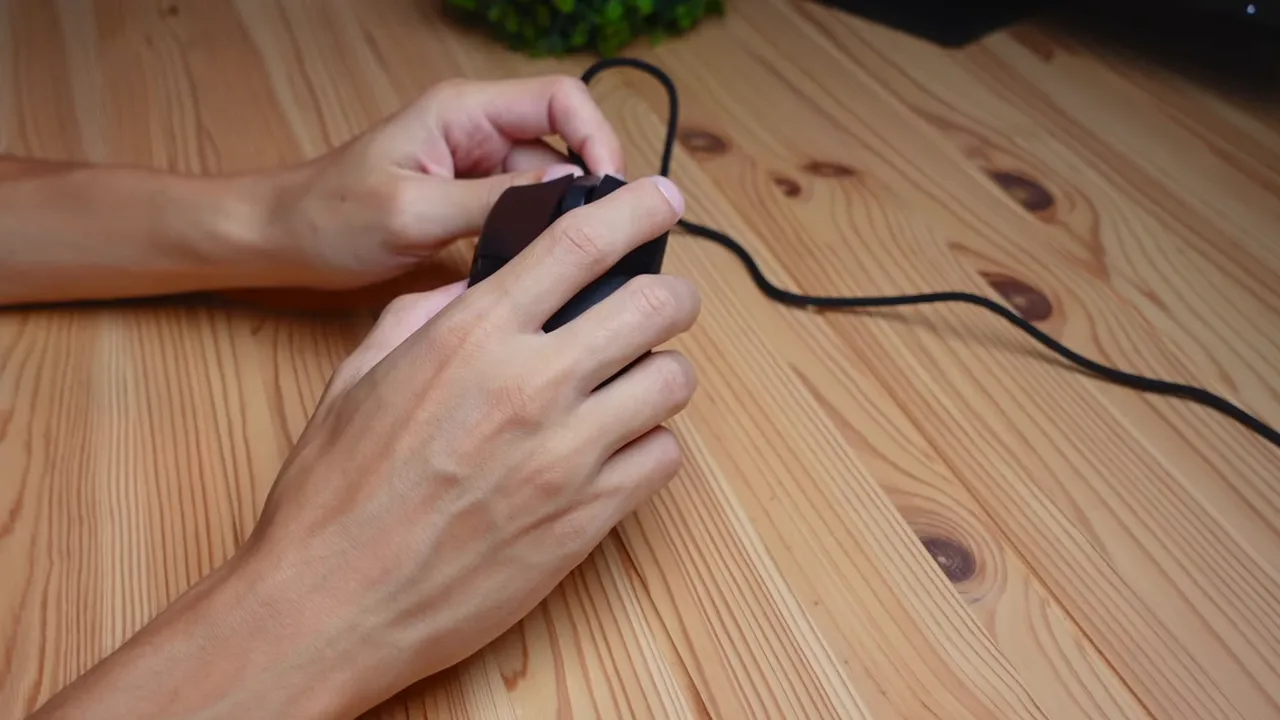
What you get in the box
The unboxing is refreshingly simple. Inside you will find the mouse itself, an instruction manual, and a few stickers. That is it. No dongles, no extra accessories. The setup is plug and play: plug the cable into your PC, let the operating system detect the device, and you are ready to go. If you like a minimal approach that avoids clutter, this is a welcome change.
Design and build quality
The Cobra uses a combination of glossy and non-glossy surfaces to create a clean, modern look. The outer shell has a glossy finish while the buttons and the palm rest use a matte, non-glossy texture. That contrast looks good and helps hide fingerprints on the most touched surfaces.
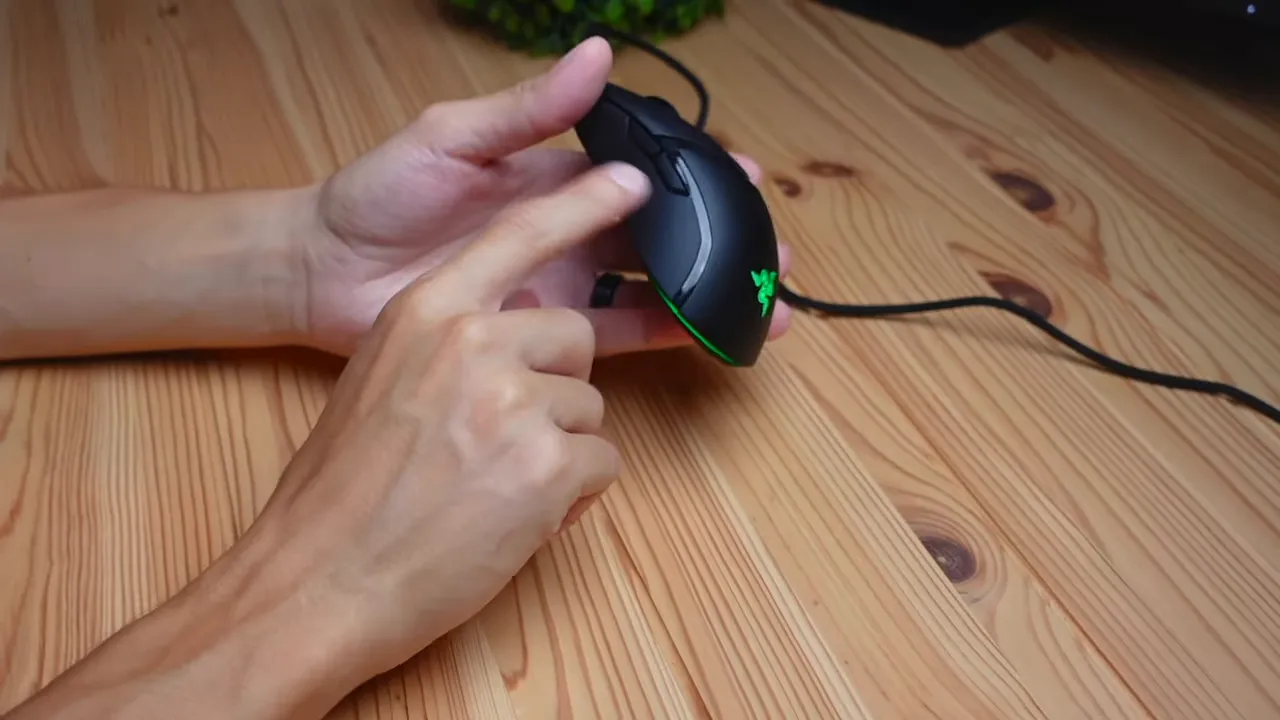
The sides are textured for grip, but they are not heavily rubberized. You will get a firmer hold than a smooth plastic shell, but if you prefer a tacky rubber side grip, this might feel slightly slippery in high-sweat sessions. It is textured enough for most users, though, and the overall silhouette is comfortable.
Scroll wheel and button construction
The scroll wheel is rubberized and feels solid. There is practically no wobble left or right, which is a sign of good mechanical tolerances—something that matters when you want consistent scrolling and reliable middle-click behavior. The main clicks use Razer's Gen-3 Optical switches, which feel tactile and decisive rather than soft or mushy.
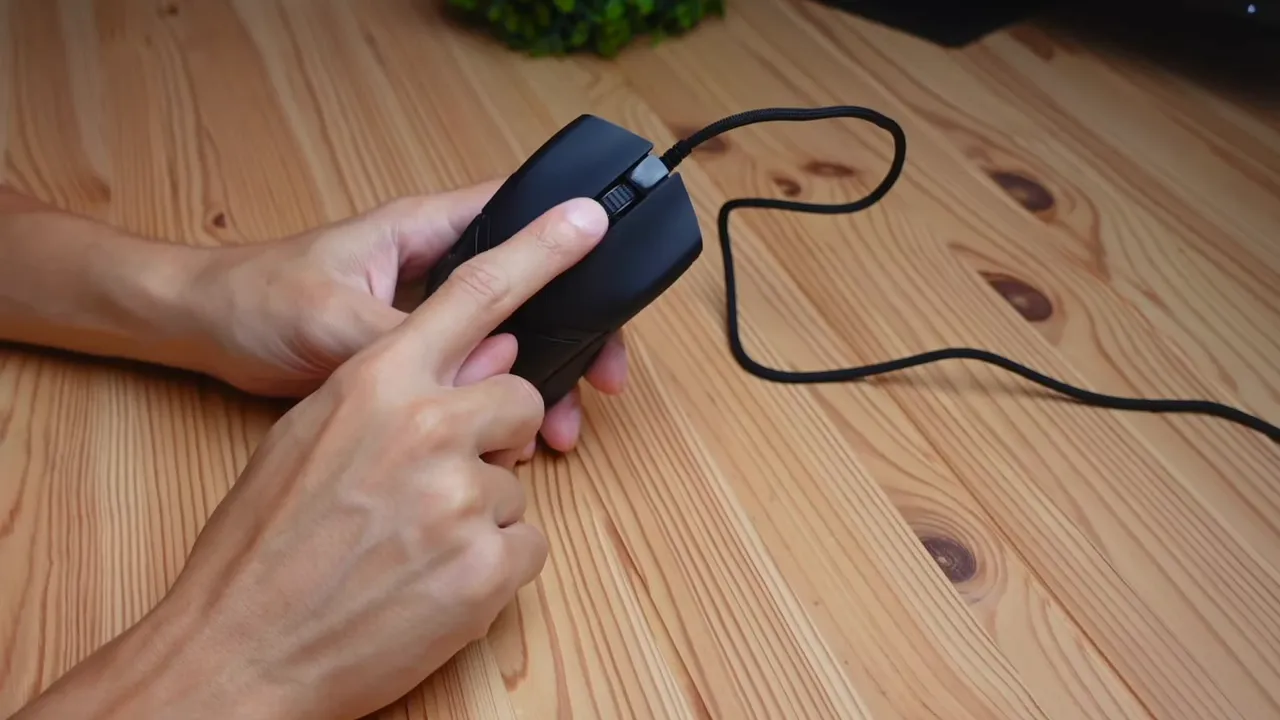
Sensor, feet, and tracking
On the bottom of the Cobra you will find an 8K optical sensor and three PTFE skates—one near the front, one around the sensor, and one at the back. This combination yields consistent tracking across a variety of surfaces. Whether you are using a traditional cloth mouse pad, a wooden desk, or a carbon fiber surface, the sensor performs reliably.
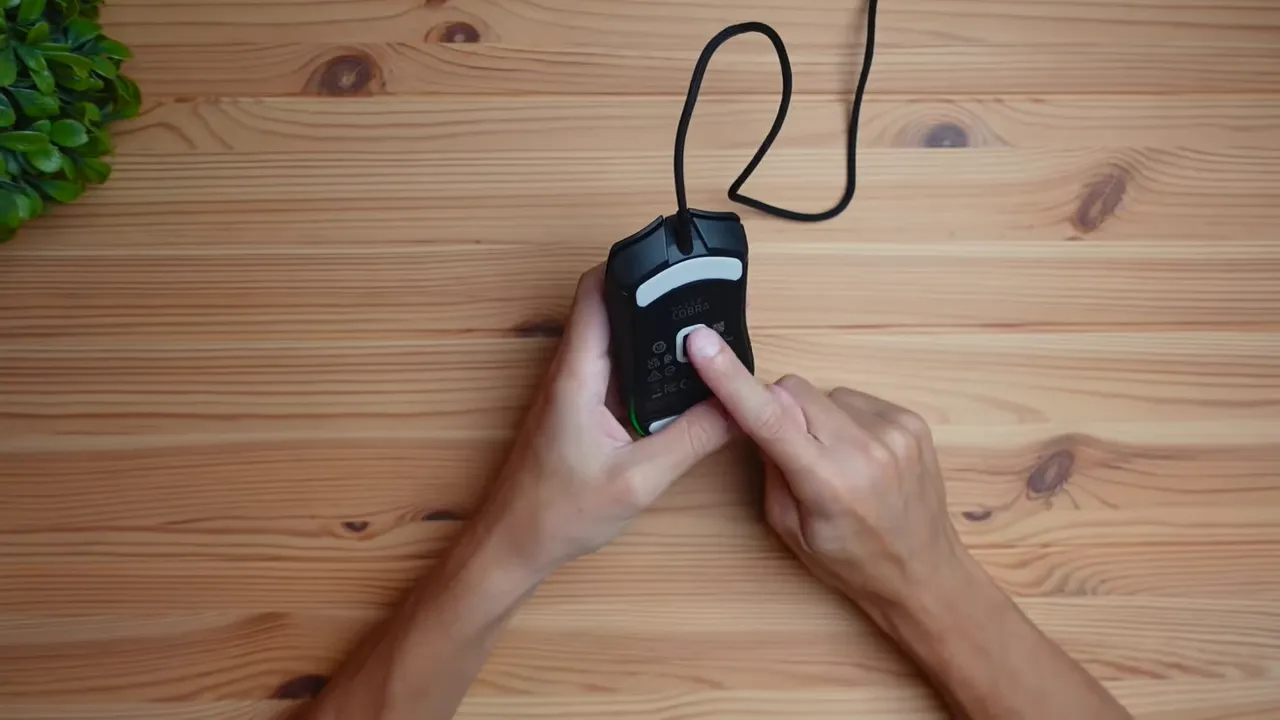
Weight and movement
The Razer Cobra is featherlight for a full-shell wired mouse. At about 58 grams it sits in the lightweight category without adopting a honeycomb shell. That means you keep a solid unibody structure while still getting fast, low-effort swipes. If you are chasing the absolute lightest mice you will find models that shave a few more grams with cutouts, but for many people the balance of weight, durability, and comfort here is preferable.
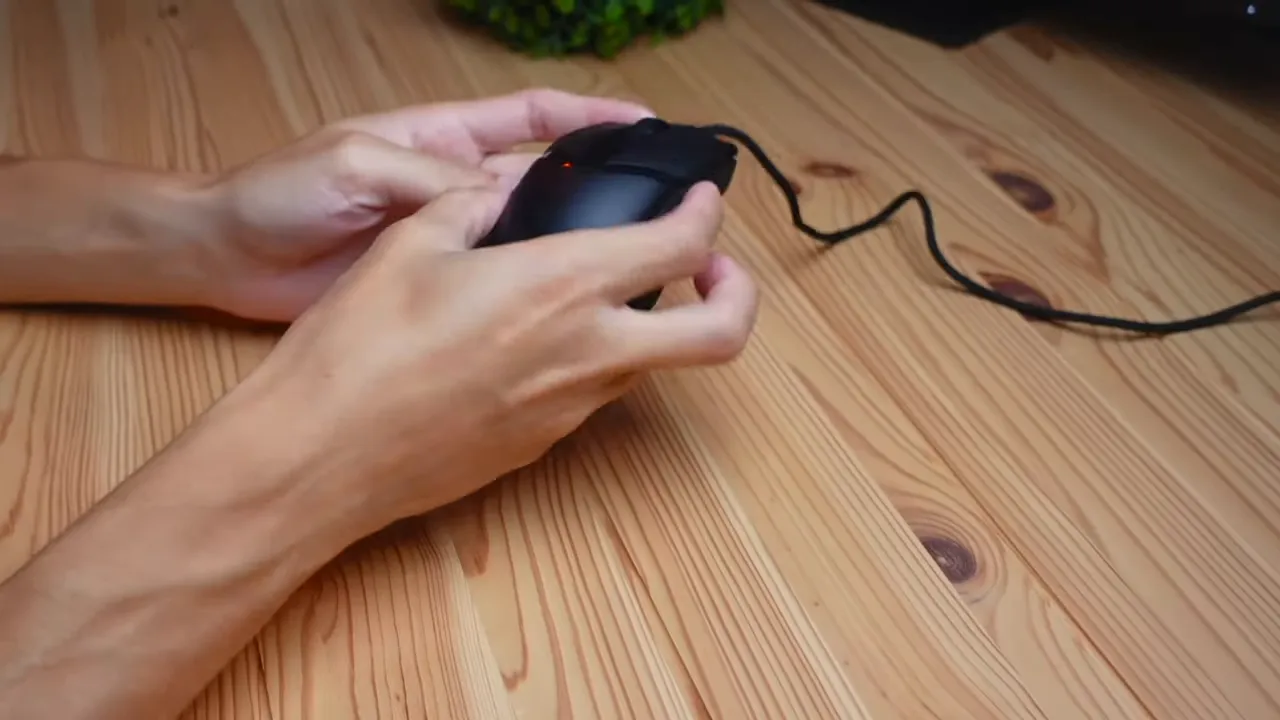
Cable: flexible and low drag
The cable is Razer's Speedflex braided type. In practice it is smooth and has minimal drag on the desk. Compared to silicone cables that can catch dust and require more maintenance, the braided Speedflex is easy to clean and tends to glide freely during quick movements. Note that the cable is not detachable, so this is a wired-only mouse with no Bluetooth or 2.4 GHz dongle options.
Switches and click feel
This mouse uses Gen-3 Optical switches from Razer. They offer a tactile click with a confident actuation and excellent durability. If you prefer quiet, rubber-dome-style soft clicks, these will feel noticeably firmer and louder. They are not ultra-quiet and could be disruptive in very quiet environments such as an office where every small sound carries. For gaming, though, the tactile feedback gives a satisfying and reliable feel.
Comfort and grip styles
Ergonomics are versatile. The Cobra adapts well to palm, claw, and fingertip grip styles. With palm grip the mouse feels comfortable for mid-sized hands—your whole palm rests easily on the shell. The claw grip is supported by the shape and side texture, allowing you to crunch your fingers without discomfort. For fingertip play the mouse is compact enough that the thumb, ring, and pinky find natural resting places along the sides.
RGB and software customization
The Cobra has two RGB zones: the Razer logo on top and a gradient underglow around the lower back of the shell. Lighting options are flexible through Razer's software, where you can pick from breathing, static, cycle, and other effects. You can also tune brightness, set a timeout to switch lighting off automatically, and synchronize effects with Chroma-enabled games and devices.
Beyond RGB, the software provides performance and button customization. You can switch DPI stages using the on-mouse center button, and the software will show an on-screen indicator of which stage you are on. Polling rates and sensitivity can be adjusted, and every usable button can be remapped to keyboard commands, macros, multimedia controls, profiles, and more. Calibration tools let you optimize the sensor for a specific mouse pad surface.
Two important things to note about software and profiles: first, the Cobra does not have onboard memory for saving profiles and settings to the mouse itself. That means if you move to another computer you will need to install Razer's software and reapply your settings. Second, while the mouse itself is compatible with both Windows and Mac at a hardware level, Razer's configuration software only runs on Windows, so Mac users will be limited to default behavior unless they run a Windows environment.
Functionality and button mapping
The Cobra supports a wide range of customizable functions. Typical assignments include:
- Keyboard macros for complex in-game commands or productivity shortcuts
- Mouse functions such as DPI shift, profile switch, or button remap
- Lighting toggles to quickly change or disable RGB
- Multimedia controls like play, pause, volume up and down
- Profiles so you can switch between different configurations for games or apps
This level of customization makes the Cobra suitable not just for gaming but also for power users who want to map repetitive tasks and save time in workflows.
Pros and cons at a glance
- Pros: Lightweight 58g design, solid Gen-3 Optical switches, accurate 8K sensor, smooth Speedflex braided cable, good surface compatibility, versatile ergonomics for multiple grip styles, customizable RGB and software features.
- Cons: No detachable cable, no wireless option, sides could be more rubberized for extra grip, no onboard memory so profiles require Razer software on each PC, software exclusive to Windows.
Who should buy the Razer Cobra?
Choose the Cobra if you want a light, responsive wired mouse with full-featured customization and comfortable ergonomics for all common grip styles. It is ideal for:
- Beginners upgrading from basic mice
- Mid-tier gamers who want precise tracking without spending on flagship models
- Productivity users who will benefit from programmable buttons and macros
- Anyone who values a solid, all-round wired mouse without the extra weight of wireless hardware
Detailed specs summary
- Weight: 58 grams
- Sensor: 8K optical sensor
- Switches: Razer Gen-3 Optical switches
- Cable: Razer Speedflex braided, non-detachable
- Feet: PTFE skates (three)
- RGB: Two lighting zones with Chroma support
- Compatibility: Windows and Mac hardware support; configuration software Windows-only
- Onboard memory: None
Final thoughts
The Razer Cobra is a balanced, well-built wired mouse that hits the sweet spot for users who want responsiveness and customization without paying for pro-tier features. It may not have the detachable cable or the ultra-minimal weight of some niche gaming mice, but its solid construction, tactile Gen-3 switches, and efficient software make it a strong recommendation for someone upgrading from an entry-level mouse or building a capable mid-tier setup.
Is the Razer Cobra a wireless mouse?
No. The Razer Cobra is a wired mouse. The cable is non-detachable and there are no Bluetooth or 2.4 GHz dongle options available for this model.
How heavy is the Razer Cobra?
The mouse weighs approximately 58 grams, which places it in the lightweight category without using a honeycomb shell. It balances light movement with a solid full-shell construction.
Does the Cobra have onboard memory for profiles?
No. The Cobra does not store profiles on the mouse. To use custom settings you must install Razer's configuration software on the computer you are using.
Can I use advanced customization on a Mac?
The mouse hardware is compatible with Mac, but Razer's configuration software is Windows-only. Without the software you will be limited to default button mappings and performance.
Are the switches quiet?
The Gen-3 Optical switches are tactile and audible. They are not ultra-quiet and may be noticeable in very quiet environments, but they deliver a confident click preferred by many gamers.
Which grip styles work best with the Cobra?
The Razer Cobra supports palm, claw, and fingertip grips comfortably. Its size and textured sides make it versatile for a wide range of hand sizes and grip preferences.
KovaTech
Kova Tech is a technology enthusiast company that provides product reviews, guides & comparisons for various software and hardware products.